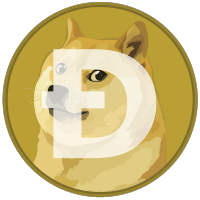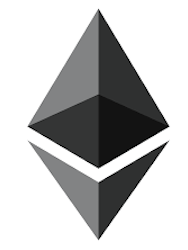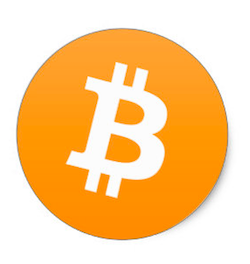Every day, more and more people are becoming aware of the fact that the value of money lies inside each of us. In the last few years, understanding of the role of community in supporting the value of a scarce asset has expanded dramatically.
Metcalfe’s law is often cited in cryptocurrency circles. The law states that the value of a network increases proportional to the number of participants in the network. For example, if there are two people in the world who have phones, they can only call each other. If there are three people who have phones, the number of people a phone owner can call doubles.
As more and more people join the network, the utility and overall value of owning a phone increases. With a cryptocurrency, this value translates directly into economic value. This is why effective analysis of a cryptocurrency or ICO always involves a look at the community of supporters behind it.
Assessing the Best Communities
The obvious measures of community support are social media followers or members of Telegram, Slack, or Discord groups. These measures are not terribly accurate, though, because 1 skilled developer sincerely committed to the idea underlying a project could be worth more than 1,000 people trying to get rich quick but making little real contribution.
A few important criteria stand out for identifying a good community:
- Presence: There are always people in the chats and forums discussing.
- Relevance: Discussion revolves around real undertakings, not just price.
- Engagement: The community is involved in productive activities, not just waiting for handouts.
- Motivation: There are real values underlying the project beyond just making money.
- Sincerity: The community genuinely cares about the values of the project, and their actions show it.
Without further ado, I present my personal picks for 10 of the most supportive communities behind cryptocurrencies.
10 of the Best Cryptocurrency Communities
Substratum
Substratum’s noble goal of decentralizing the internet has rightfully earned them a big following of supporters. Community is part of the fundamental vision of Substratum—rather than being hosted on centralized servers, Substratum envisions communities replacing the monolithic monsters of today’s internet. Recent debates on so-called “net neutrality” boosted Substratum’s appeal and have led to further growth of the already very supportive community.
Bytecoin
Bytecoin is one of the original privacy coins and has been around since before crypto was cool. Some of the most successful currencies around are forks of Bytecoin, which is a testament to its popularity. Like many open source projects with a mission, people can rally behind Bytecoin’s cause, and do. Newcomers in the Bytecoin community are often surprised by the friendliness and helpfulness of the core supporters, which is a testament to the sincerity of the intention behind the project.
Waves Platform
Waves is one of the first platforms to work on making token issuance and crowdfunding accessible to the masses, and is also known for a large and enthusiastic following, and an excellent rapport between the developers and the community.
The Waves team further increased community engagement with the creation of the Waves Community Token (WCT). The token gives owners the ability to rate new projects on the platform, as well as gain access to future rewards. This is an excellent example of how blockchains are pioneering new, distributed business models based on voluntary participation.
Monero
Like it or not, dark web trades are a huge and profitable market—and let’s face it, there are a lot of laws out there that just don’t make sense. The global black market is valued in the trillions of USD, and cryptocurrency has made e-commerce in contraband products much easier. This is the most rock solid, well documented, and lucrative use case of cryptocurrency as of yet, and Monero has been picked up by a number of dark web markets for exactly that purpose.
Monero is an open-source project and a favorite within the anarchist core that originally helped bring Bitcoin to the mainstream. There is a strong emphasis on inclusion and decentralization, which is why Monero was among the first currencies to “ASIC-proof” their consensus protocol to make sure that mining would remain open to (somewhat) normal people.
Dogecoin
The original joke currency, Dogecoin was based on the viral Doge meme. Although it has seen rough times, it was and is a beautiful illustration of the fact that community is the single most important element in establishing value, no matter what it is that brings that community together.
Dogecoin probably has one of the highest levels of community enthusiasm of any currency. When it started out, no one thought they were going to get rich from it, so the community developed a culture of freely passing the coins around. As it turns out, this ended up supporting the value more than tight-fisted hodling.
Members of the Dogecoin community have generously donated to sponsor a Doge-themed NASCAR car, and to send an actual physical Dogecoin literally to the moon. The community has also donated Dogecoin to charity, sponsoring digging wells to provide clean drinking water in Kenya. These types of actions make the Doge community fun to be a part of, which in turn has resulted in Doge’s unlikely position among the top cryptos.
Lisk
Lisk also has appeal for the open source and development community with its approach to software development. There are regular giveaways to supporters, and the Lisk community is known for focusing on real improvements rather than whining about price movements.
Decentralization is a major issue for many in the crypto community, and while other projects are gradually working towards decentralization, Lisk is already there. Lisk’s governance structure ensures a high level of community engagement, since nodes are elected and in turn distribute rewards to the stakeholders who voted them in. This participatory governance structure is already paying off in terms of community participation.
Nano
Nano, formerly known as RaiBlocks, is a DAG-based cryptocurrency that has become notorious on Reddit for its devoted fanbase.
The support base is truly in love with Nano, and it seems like Nano supporters may have the same single-minded obsession with their favorite crypto that Bitcoin supporters once had. Fans have created a spinoff currency called “Banano” as well, just for fun.
The community recently donated over US$950 worth of Nano to a Venezuelan member of the community who was desperate amidst the skyrocketing inflation of the South American country. This was enough to buy food to feed dozens of people. With actions like this, the Nano community shows itself to be a role model for the whole crypto community.
EOS
Dan Larimer’s previous creations, BitShares and Steemit, have a huge following of supporters. It’s not a surprise that EOS, aiming to be a Bitcoin/Ethereum/everything killer, has a lot of people excited. The EOS crowdsale is estimated to have raised over US$4 billion.
EOS has grown in 1 year to having the single most active code repository of any project in crypto and one of the largest social media followings, as well. EOS supporters seem to hope, and believe, that EOS will take the throne from Bitcoin as king of crypto.
Ethereum
The things you can theoretically do with Ethereum are virtually limitless, scalability aside. This makes Ethereum a favorite with developers. Since Ethereum hit the scene in a big way well after crypto had achieved awareness in the mainstream, some of the early investors were well connected in finance and business, and have consequently been helping to fund tons of Ethereum infrastructure projects.
Ethereum does for many software developers what Bitcoin once did for anarchists and libertarians—it inspires an almost religious glow of excitement. One Ethereum developer estimated that Ethereum had 30 times more developers than the next biggest blockchain project. This may be slightly exaggerated, but it’s not too far off the mark.
Ethereum also scores big points for the creation of the Ethereum Community Fund. The fund was created by a number of startups working with the Ethereum blockchain to help finance promising projects looking to build infrastructure on Ethereum.
Bitcoin
The gold standard of cryptocurrency, Bitcoin probably still has the strongest community of supporters both qualitatively and quantitatively. Countless experienced and highly intelligent members of the crypto community are still big on Bitcoin—the love affair runs so deep that some wax poetic and compare Bitcoin to Paris.
There is something to be said for the fact that Satoshi, whoever he/she/they is, is still sitting on a million(!) bitcoin and has not touched any of them.
This contrasts to a lot of newer projects out there, where the creators are clearly keen on making money and allot themselves hefty pre-mines.
A Chain is as Strong as its Weakest Link
It’s no coincidence that many of the biggest coins and projects out there also happen to have the most supportive communities. There is, in fact, a causal link. Many of the newcomers among the top coins, however, have built supportive communities on the basis of financing, rather than a group of starry-eyed idealists.
The economy of Bitcoin is already bigger than that of many small countries, so digging in and supporting a cryptocurrency is kind of like staking a digital claim and becoming a citizen of a new, virtual country. Choose wisely.











